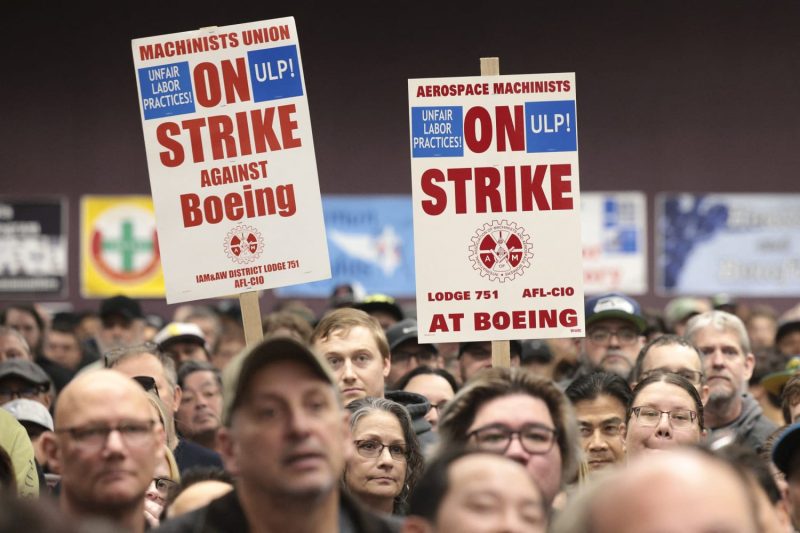The Boeing machinists union, The International Association of Machinists and Aerospace Workers (IAM), incited significant economic ripples recently when they chose to reject a proposed labor contract, thereby prolonging a strike that has been in progress for weeks. This momentous decision has sent shockwaves throughout the aerospace industry, reshaping the perceived dynamics between corporate agendas and workers’ rights.
Boeing, a cornerstone of the American aviation sector and one of the world’s largest commercial jet builders, initially offered an agreement which they believed was comprehensive and cognizant of the demands made by their workforce. However, after careful appraisal, the contract was dismissed by a majority of the union members, escalating the ongoing labor dispute.
According to the union, the proposed labor contract was reflective of the company’s strategic underestimation of the machinists’ labor value. The rejected proposal lacked in aspects such as improved healthcare benefits, job security provisions, wage increments, and retirement benefits. The IAM, which represents approximately 35,000 Boeing employees, relayed their frustrations with what they regarded as discounting of their essential role in the corporate success.
The abrupt, direct rejection of the labor contract delineated the union’s intent to demand better compensation and improved working conditions. The unanimous disapproval perfectly demonstrated their solidarity and commitment to protecting their interests. The Boeing machinists exhibited their discomfort with the proposed compromises, spawning an impasse that instigated a costly and extended strike period.
The ramifications of this suspension of labor have proven to be far-reaching. Boeing, due to its sheer scale of operations, has disrupted its supply chain, affecting airlines and suppliers alike. Moreover, delays in deliveries of Boeing aircraft have caused stock prices to suffer, and several airlines have had to reconsider their expansion plans.
This strike has also had a resonating impact on the overall health of the American economy. With the aerospace industry generating significant revenue and offering considerable employment opportunity, a strike of this magnitude inevitably affects the broader economic landscape. The continuous absence of a considerable number of employees at the production frontline has caused slowed GDP growth in regions where Boeing operates.
In socio-political terms, this extended strike has underscored the central role of labor unions in negotiating terms of employment. The events surrounding the Boeing machinists’ strike demonstrate the steady rise in labor power, with unions using their collective bargaining strength to press for more favorable working conditions.
In the light of these unfolding events, the machinists’ strike mark a significant phase in the history






























